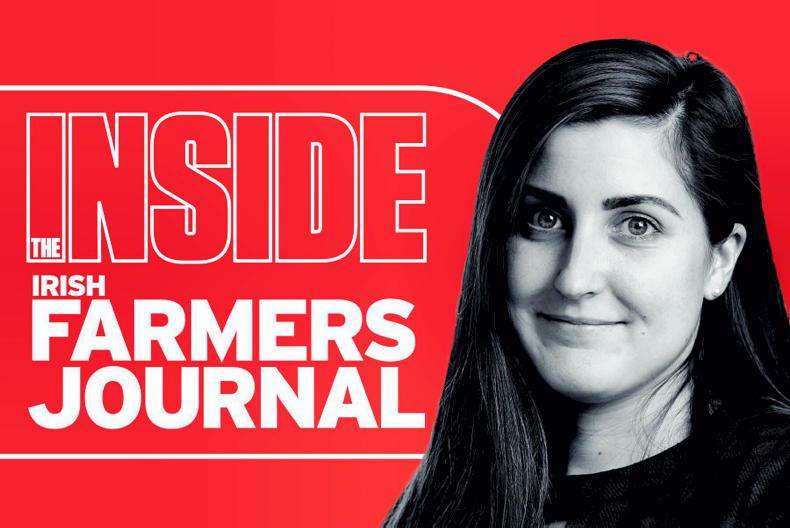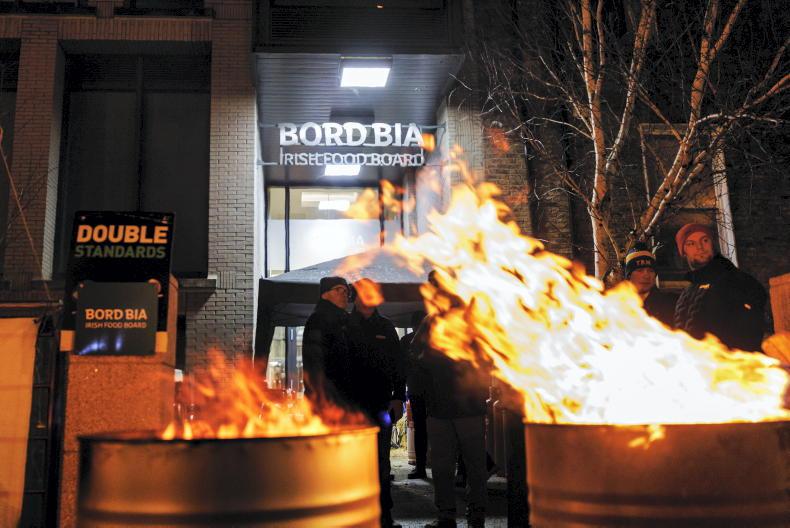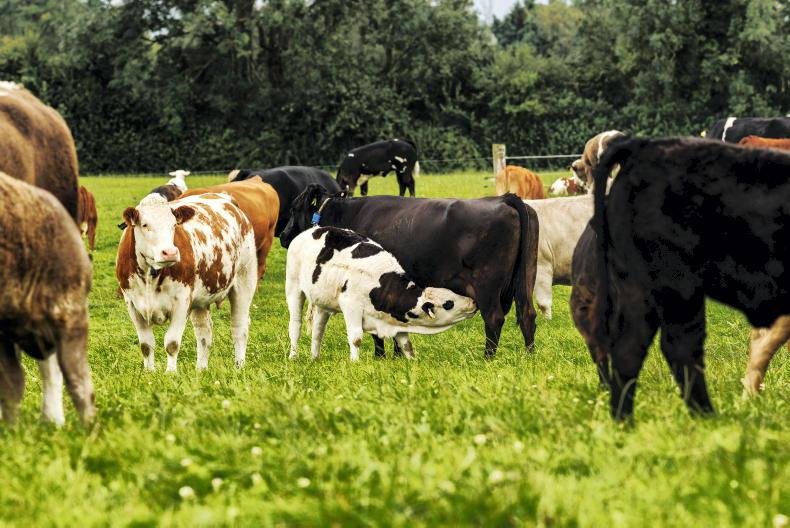It is a week on from the UK vote to leave the EU, and the only thing that can be said with certainty about the future shape of the UK-EU relationship is that nothing is clear and not much will be straightforward.
Anyone offering definite predictions on the economic or social impact of this decision, and the outcome of negotiation discussions that have not yet begun, is a brave person.
With 40% of our exports destined for the UK market, it is clear, however, that the Irish farming and agri-food sector will be hugely affected by the outcome of this decision. At a time of major political uncertainty, our focus must be on highlighting the key issues of concern and identifying the best means by which these can be
alleviated.
The two-year goodbye
The UK remains part of the EU for the next two years at a minimum. This is set out in Article 50 of the EU Treaty (Treaty on the Functioning of the European Union). To start the clock, the UK has to formally notify the EU of its intention to leave. It was not sufficient that the population voted to leave
Why is this relevant? For this period of time, we have certainty that full and open market access between Ireland and the UK remains; that is no tariffs, no quotas, no border checks. We also have certainty on the EU finances. There will be no change to the EU or CAP budget.
Exchange rate volatility
Since the votes were counted on Thursday night, the pound sterling has significantly weakened against the euro. In one week, it has moved from £0.78:€1 to £0.83: €1, a drop in value of over 6%.
We have seen sterling at this weakened level against the euro in the past. However, the sudden drop in sterling will negatively affect the competitiveness of euro exports to the UK, with a potential fall in value. For farmers, this challenge comes in a year where product prices across many sectors were already under serious pressure.
It is critical that steps are taken by governments and institutions within the UK and the EU to provide the reassurances that will minimise uncertainty and help to stabilise exchange rates.
Exchange rate volatility cannot be controlled in the short term, at least until there is greater political certainty. The IFA has identified, therefore, the practical steps that our Government can take to mitigate some of the worst income effects of the exchange rate uncertainty.
Utilise fully the flexibility to provide direct financial supports to farmers under EU state aid rules – in the form of short-term cashflow financing.Provide increased funding for farm schemes in October’s budget. These schemes have already been agreed as part of Ireland’s Rural Development programme. They support farm incomes and output, and have a positive knock-on impact in the wider rural economy. Increase competition in the banking sector by providing additional sources of finance, which will drive down borrowing costs.In the longer term, should sterling settle at a lower rate for an extended period of time, the issue will have to be revisited. Serious consideration will have to be given to identifying additional support mechanisms for sectors that will be particularly exposed.
Trading relationship with the UK
Almost €5bn worth of agri-food exports go to the UK – that’s 50% of our beef, 60% of our cheese, over €350m worth of pigmeat exports, and about €120m of mushroom exports. This trade is undertaken within the EU single market; that is with no tariffs applied, or other regulatory barriers to trade, such as border checks, health certification checks, etc.
What is the position for countries that trade with the EU outside of the single market? The average EU tariff on agricultural products imported from outside the EU is almost 15% for WTO countries. There are lower tariffs for countries which have a special bilateral trade agreement with the EU, the agreement of which between the EU and UK must be a priority for all.
The imposition of barriers to trade would all add to costs and undermine the competitiveness of our agri-food exports. It simply cannot be overstated how important it is for our sector that as free as possible market access to the UK is maintained, with the minimisation of any barriers to trade.
The EU budget
The budget for the EU has been agreed between now and 2020, under the seven year Multi-Annual Financial Framework. Under this agreement, funding for the CAP at an EU and individual member state level has been agreed. This funding is the basis for the seven-year Rural Development Programme and, at individual farmer level, their Basic Payment entitlement.
A priority for the Irish Government must be to ensure there is early agreement and certainty provided on the EU and CAP budget up until 2020.
Other issues
The range of additional issues that will potentially affect Irish farming and the agri-food sector is vast. In the area of animal health, it is critical that there is policy coherence and that comparable standards are maintained. For input purchases, there will be a need for straightforward taxation rules on the supply of goods and services between the EU and UK (eg VAT on input supplies). The particular issues of cross-border farms will have to be taken into account, while the potential use of non-EU ingredients in final food products will present a new challenge.
Conclusion
While the sheer number of issues illustrates the complexity of the current situation, it must be recognised that, with greater political certainty, the economic issues will then work their way through.
For the moment, we need to concentrate on implementing measures to mitigate the short-term impact of the exchange rate volatility, and keeping the issues of the future trading relationship and certainty on the EU budget to the top of the Government and broader EU policy agenda.
It is a week on from the UK vote to leave the EU, and the only thing that can be said with certainty about the future shape of the UK-EU relationship is that nothing is clear and not much will be straightforward.
Anyone offering definite predictions on the economic or social impact of this decision, and the outcome of negotiation discussions that have not yet begun, is a brave person.
With 40% of our exports destined for the UK market, it is clear, however, that the Irish farming and agri-food sector will be hugely affected by the outcome of this decision. At a time of major political uncertainty, our focus must be on highlighting the key issues of concern and identifying the best means by which these can be
alleviated.
The two-year goodbye
The UK remains part of the EU for the next two years at a minimum. This is set out in Article 50 of the EU Treaty (Treaty on the Functioning of the European Union). To start the clock, the UK has to formally notify the EU of its intention to leave. It was not sufficient that the population voted to leave
Why is this relevant? For this period of time, we have certainty that full and open market access between Ireland and the UK remains; that is no tariffs, no quotas, no border checks. We also have certainty on the EU finances. There will be no change to the EU or CAP budget.
Exchange rate volatility
Since the votes were counted on Thursday night, the pound sterling has significantly weakened against the euro. In one week, it has moved from £0.78:€1 to £0.83: €1, a drop in value of over 6%.
We have seen sterling at this weakened level against the euro in the past. However, the sudden drop in sterling will negatively affect the competitiveness of euro exports to the UK, with a potential fall in value. For farmers, this challenge comes in a year where product prices across many sectors were already under serious pressure.
It is critical that steps are taken by governments and institutions within the UK and the EU to provide the reassurances that will minimise uncertainty and help to stabilise exchange rates.
Exchange rate volatility cannot be controlled in the short term, at least until there is greater political certainty. The IFA has identified, therefore, the practical steps that our Government can take to mitigate some of the worst income effects of the exchange rate uncertainty.
Utilise fully the flexibility to provide direct financial supports to farmers under EU state aid rules – in the form of short-term cashflow financing.Provide increased funding for farm schemes in October’s budget. These schemes have already been agreed as part of Ireland’s Rural Development programme. They support farm incomes and output, and have a positive knock-on impact in the wider rural economy. Increase competition in the banking sector by providing additional sources of finance, which will drive down borrowing costs.In the longer term, should sterling settle at a lower rate for an extended period of time, the issue will have to be revisited. Serious consideration will have to be given to identifying additional support mechanisms for sectors that will be particularly exposed.
Trading relationship with the UK
Almost €5bn worth of agri-food exports go to the UK – that’s 50% of our beef, 60% of our cheese, over €350m worth of pigmeat exports, and about €120m of mushroom exports. This trade is undertaken within the EU single market; that is with no tariffs applied, or other regulatory barriers to trade, such as border checks, health certification checks, etc.
What is the position for countries that trade with the EU outside of the single market? The average EU tariff on agricultural products imported from outside the EU is almost 15% for WTO countries. There are lower tariffs for countries which have a special bilateral trade agreement with the EU, the agreement of which between the EU and UK must be a priority for all.
The imposition of barriers to trade would all add to costs and undermine the competitiveness of our agri-food exports. It simply cannot be overstated how important it is for our sector that as free as possible market access to the UK is maintained, with the minimisation of any barriers to trade.
The EU budget
The budget for the EU has been agreed between now and 2020, under the seven year Multi-Annual Financial Framework. Under this agreement, funding for the CAP at an EU and individual member state level has been agreed. This funding is the basis for the seven-year Rural Development Programme and, at individual farmer level, their Basic Payment entitlement.
A priority for the Irish Government must be to ensure there is early agreement and certainty provided on the EU and CAP budget up until 2020.
Other issues
The range of additional issues that will potentially affect Irish farming and the agri-food sector is vast. In the area of animal health, it is critical that there is policy coherence and that comparable standards are maintained. For input purchases, there will be a need for straightforward taxation rules on the supply of goods and services between the EU and UK (eg VAT on input supplies). The particular issues of cross-border farms will have to be taken into account, while the potential use of non-EU ingredients in final food products will present a new challenge.
Conclusion
While the sheer number of issues illustrates the complexity of the current situation, it must be recognised that, with greater political certainty, the economic issues will then work their way through.
For the moment, we need to concentrate on implementing measures to mitigate the short-term impact of the exchange rate volatility, and keeping the issues of the future trading relationship and certainty on the EU budget to the top of the Government and broader EU policy agenda.









SHARING OPTIONS